- Lando Norris beats Max Verstappen to win F1 title at thrilling Abu Dhabi Grand Prix
- Former Liverpool star admits he ‘didn’t like’ Raheem Sterling
- Dad Spotted Removing Armpit Hair for Free Meal Surprise in Sydney | News World
- Péter Magyar hosts campaign event in Budapest, criticises government tactics
- ‘He is special’ – Matheus Cunha praises Man Utd over £65m signing
- Kaja Kallas Rejects Civilisational Decline Claims at Munich Security Conference
- Coach passenger ‘stabbed in shoulder’ on M6 close to Cannock | UK News
- Deep Blue Hole Discovered: Scientists Struggle to Reach the Bottom | World News
Rishi Sunak is set to launch a non-fungible token (NFT) – a type of cryptocurrency asset – through the Royal Mint as part of a drive to make the UK a “global crypto asset hub.”
The cryptocurrency sector has been met with much criticism, including the fact that it is notoriously unregulated and includes volatile currencies such as Bitcoin.
Fans of NFTs say they are a unique asset class whilst NFT critics say the token is fundamentally valueless and bad for the climate.
Chancellor Rishi Sunak will be working with the Royal Mint on an NFT “this summer.”
It comes as the Treasury plans to “ensure the UK financial services sector remains at the cutting edge of technology, attracting investment and jobs and widening consumer choice”.
This will be in part achieved by “enhancing the competitiveness of the UK tax system to encourage further development of the cryptoasset market”.
Mr Sunak said: “It’s my ambition to make the UK a global hub for cryptoasset technology, and the measures we’ve outlined today will help to ensure firms can invest, innovate and scale up in this country.
“We want to see the businesses of tomorrow – and the jobs they create – here in the UK, and by regulating effectively we can give them the confidence they need to think and invest long-term.
“This is part of our plan to ensure the UK financial services industry is always at the forefront of technology and innovation.”
The public’s reaction to Rishi Sunak’s NFT announcement has not been positive – many speculate this is yet another stunt from the government. We’re diving into Mr Sunak’s speech, attempting to read in-between the lines, looking at the public’s reaction and who’s set to benefit the most.
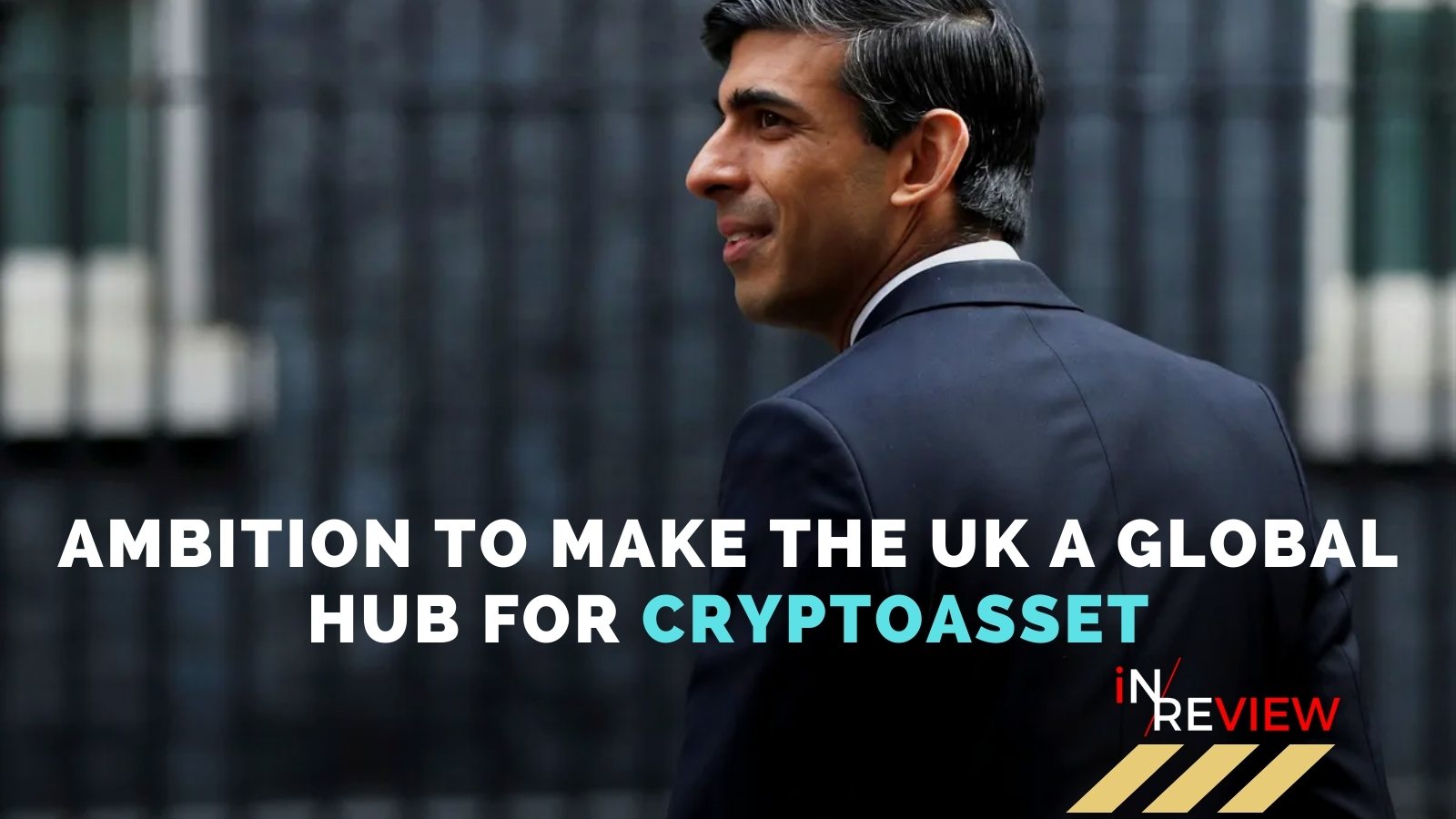
they should be a little more careful about who Britain “gets into bed with” because being a global hub for other dodgy assets has worked out so well.
What does the NFT speech mean?
In an article published in the Financial Times, writer Jemima Kelly did not mince her words. She says that in his attempt to make Britain the lead crypto nation he was following in the footsteps of the “world’s coolest dictator”, El Salvador’s “bitcoin-bro president Nayib Bukele.”
FT examines the economic secretary John Glen’s speech that Rishi Sunak is referring to. The paper highlights the sections to pay particular attention to. Here’s an excerpt (with FT’s emphasis):

………………….
“If there is one message I want you to leave here today with, it is that the UK is open for business — open for crypto businesses.
We’re still right on the cusp of this technology breaking through. But there isn’t even consensus on what the implications of crypto are . . . when or whether we’re going to reach some kind of steady-state . . . or even whether crypto itself is a good thing.
There’s a massive debate between the sceptics and the evangelists, and there are a wide range of views in between.
Some people worry deeply about crypto . . . and about how it’s going to harm consumers . . . or provide a platform for illicit activity free from government oversight . . . or drive-up carbon emissions.
Others say it’s the best thing ever. They argue that crypto could do things like revolutionise global finance . . . by making financial exchanges more transparent, efficient and democratic, and placing currency in the hands of people not nations.
That leaves us here in the UK with a big question to answer: How are we going to respond?
Our answer is this:
If crypto-technologies are going to be a big part of the future, then we — the UK — want to be in, and in on the ground floor.
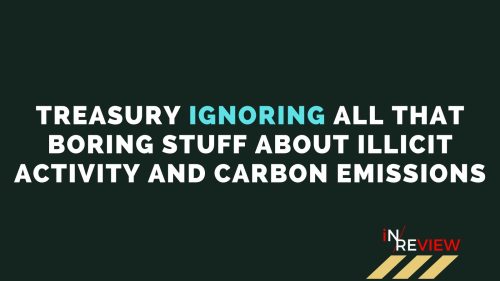
………………….
FT claims the Treasury is choosing to “ignore all that boring stuff about illicit activity and carbon emissions” and instead embrace the positive side of the crypto story.
After some fluff about how the UK will ensure that “regulators have the right tools to manage the associated risks” and how the government would be “looking closely at energy usage associated with certain crypto-technologies” (that should do it), the crypto-evangelism intensifies:
………………….
“We see enormous potential in crypto . . . and we want to give ourselves every chance to take maximum advantage. We aren’t going to lower our standards, but we are going to maintain our technologically neutral approach. Having robust and effective regulation won’t hinder innovation, it’ll actually boost it — by giving people and businesses the confidence they need to think and invest for the long-term . . .
We have a detailed plan . . . we are, I am, determined to learn quickly . . . and the government will lead the way in harnessing the potential of blockchain and supporting the development of a world-best crypto ecosystem . . .
There’s a genuine opportunity to build on our strengths in fintech, seize the capitalist energy which has already made UK financial services what it is . . . and use it to unleash the potential of crypto-technologies.
………………….
FT concludes the government hasn’t learned that they should be a little more careful about who Britain “gets into bed with” because being a global hub for other dodgy assets has worked out so well.
‘Poorly judged’ stunt
Biggest fall in living standards since the 1950s
The backlash facing the chancellor
'Stunt' amid a cost of living crisis
The timing of the NFT announcement, just four days after a huge rise in energy bills that has left millions struggling, is the focal point of a piece from the i that criticised Rishi Sunak for the ‘poorly judged’ stunt.
Sceptics have attacked the timing of the NFT announcement, an interesting distraction at a time when the energy price cap will leave households shelling out hundreds of pounds more to heat their homes.
Promoters of NFTs claim they hold the power to transform the economy, but critics will argue they are “of little proven value or utility, waste an immense amount of energy, and exist in a tech-fuelled bubble rife with scams and exploitation.”
The move into state-backed NFTs is being further criticised due to the biggest fall in living standards since the 1950s. The news that the chancellor is spending the Easter holidays with his wife at their £5.5million oceanfront penthouse in California has not been well-received as the UK is in a dire situation and the public feel the chancellor has not done enough.
Rishi Sunak was a Tory leadership favourite, but his image has been tarnished in recent months. The online reaction to NFTs were fairly negative:
Rishi Sunak announcing an NFT and flying to California after being told his Spring Statement is leaving 1.1m Brits - including 500k kids - falling into poverty is truly unreal
— Nadine Batchelor-Hunt (@nadinebh_) April 4, 2022
https://twitter.com/jamesrbuk/status/1510983369835704320?ref_src=twsrc%5Etfw%7Ctwcamp%5Etweetembed%7Ctwterm%5E1510983369835704320%7Ctwgr%5E%7Ctwcon%5Es1_&ref_url=https%3A%2F%2Fwww.huffingtonpost.co.uk%2Fentry%2Frishi-sunak-nfts-treasury-royal-mint_uk_624b1309e4b0587dee6cef15
Rishi Sunak facing some tough decisions in the coming weeks - namely, Santa Monica, Marbella or the South of France.
— Have I Got News For You (@haveigotnews) April 4, 2022
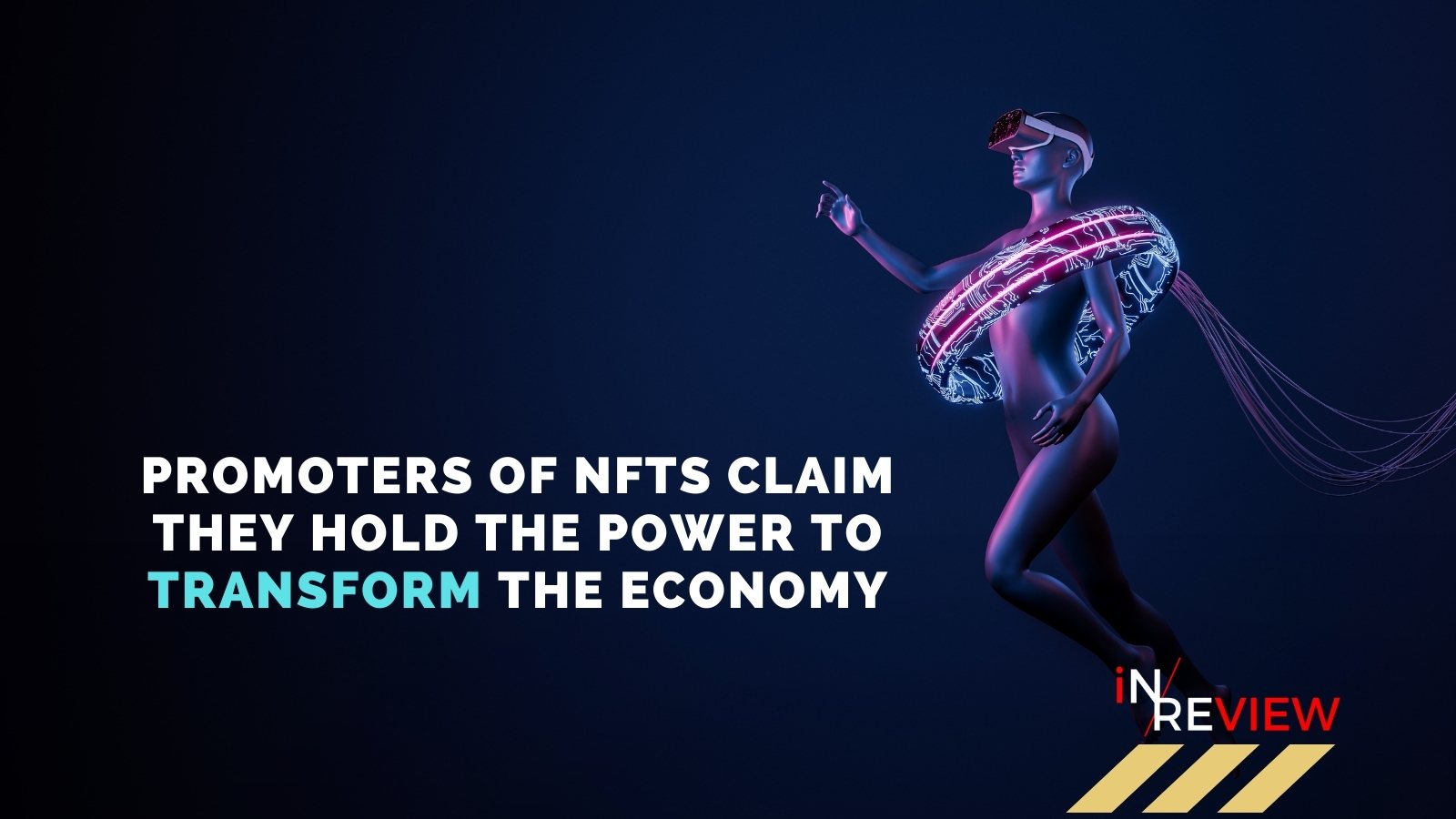
The Spring Statement
shadow chancellor Rachel Reeves called Rishi Sunak’s priorities “hopeless.”
‘A National Embarrassment’
The backlash facing the chancellor comes following his disastrous spring statement – dubbed a ‘mini-budget’. The spring statement was widely criticised for failing to do enough for those hit hardest by the crisis.
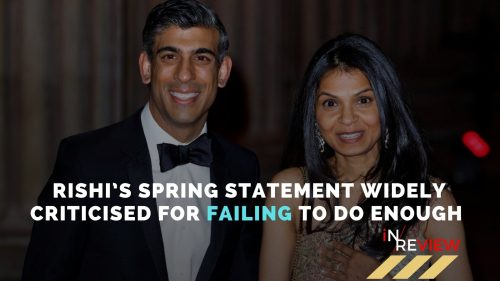
The Spring Statement
The decision to raise Universal Credit payments by just 3.1 per cent was controversial. With inflation forecast to hit 8.6 per cent later this year, this amounts to a real terms cut. With payments so low that the UN poverty envoy warned they breached human rights, campaigners suggest around 600,000 will be plunged into poverty.
Following the mini-Budget, Sunak held a widely-mocked photo opp and now in the wake of the NFT announcement, shadow chancellor Rachel Reeves called Sunak’s priorities “hopeless.”
Sunak’s NFT announcement came on the same day the Bank of England governor Andrew Bailey warned cryptocurrencies are the “new front line” for scams.
Why this ‘extraordinary’ lapse of judgement?
In between figuring out how to control inflation, pay for public services and reboot the economy, chancellor Rishi Sunak will ask the Royal Mint to “knock out a few” NFTs and put them up for sale.
NFTs are the latest “wheezes designed to part gullible investors from their money” and the government’s announcement was, rightly, met with widespread ridicule.
But why has there been this “extraordinary lapse of judgement” from Rishi Sunak?

“First, it should surely be the job of the Treasury to tell everyone to tread carefully in the crypto markets, not to jump on the bandwagon with a flimsy digital token of its own. The Governor of the Bank of England Andrew Bailey has been telling everyone that NFTs create the potential for scams and frauds on an unprecedented scale, but it will be hard to get across that message when his boss is busily cooking up a few of his own.
“Next, and more seriously, Sunak has been printing money like it is going out of fashion. There was already a risk that his extravagance would undermine the credibility of the currency. Issuing dodgy-looking NFTs will only make that worse.”
The chancellor’s ”addiction to gimmicks” is undermining his credibility – for a man that seemed destined to take over from Boris, his NFT gimmick makes him look “lightweight and glib” according to The Spectator.
What the gesture represents
NFTs don’t pose a threat themselves - they’ll likely end up in “the dustbin of history alongside all other fads devised by big tech and financial scammers.” But governments buying into NFTs raise red flags because it tells us “they have drunk the crypto bro kool-aid being pushed by Silicon Valley billionaires.”
Brexit threatens City of London's role
UK government needs to preserve the role of cash
NFTs are marketed as a means of using blockchain technology – a sort of public ledger – to enforce property rights over “one-of-a-kind” digital “assets”, such as cartoon ape avatars.
The government-backed Royal Mint NFT has come as a shock. In an article for OpenDemocracy – the writer says that whilst the government has released few details of its own planned NFT, in principle, we can expect it to mean the Royal Mint selling ownership of a digital file such as an image, in a similar manner to which it sells other collectables such as coins.
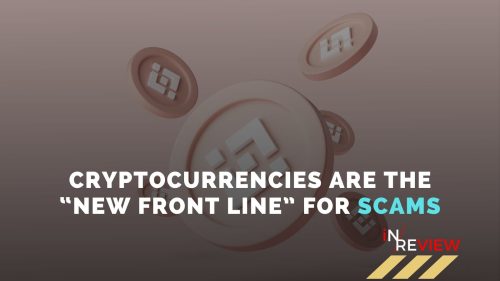
We don’t know how many the Royal Mint will produce or how much they’ll sell for, but “those details are less important than what the gesture represents.”
NFTs have taken off over the past year especially since celebrities have jumped on the bandwagon, but governments getting behind NFTs should worry us.
NFTs don’t pose a threat themselves – they’ll likely end up in “the dustbin of history alongside all other fads devised by big tech and financial scammers.” But governments buying into NFTs raise red flags because it tells us “they have drunk the crypto bro kool-aid being pushed by Silicon Valley billionaires.”
The problem with Rishi’s NFT announcement is that “gimmicky digital tokens” won’t help people put food on the table or heat their homes. And the government knows this but “like grifters the world over, they see it as an opportunity to make money.”
The NFT news is part of a wider government announcement to make the UK a “global cryptoasset technology hub” – hoping the City will skim profits off of cryptobubbles. “Unsurprisingly, the government’s plan includes “enhancing the competitiveness of the UK tax system to encourage further development of the cryptoasset market”. Tax breaks, in other words.”
With Brexit threatening the City of London’s role as a global hub for finance, the government is keen to turn Britain leaving the single market into an opportunity to cut back financial regulation and compete with other jurisdictions for business.
The government’s new approach to regulation may force regulators to change their tune and cut protections against crypto scams, regardless of the consequences for ordinary people.
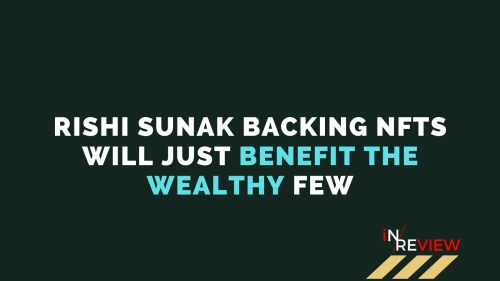
Cryptobubbles will make a few people in the City lots of money, but it’s not good news for the rest. The “vast majority of cryptoassets” will provide little to no value and their inflated valuations have all the markings of a speculative bubble, which will leave regular people bearing the costs when it bursts.
The government’s press release failed to make a convincing case for the utility of cryptoassets – making an argument that so-called stablecoins “could provide a more efficient means of payment and widen consumer choice.”
There are issues with our current digital payments system, which is in need of systemic reform. But central banks, such as Bank of England, are already working on a better solution – the central bank digital currencies (CBDCs) which will allow the public to transact in public digital money through their own accounts at the central bank – thus eliminating unnecessary middlemen.
There is also a concern about what these new forms of digital money mean for privacy. For payment methods to be popular there must be strong protections that minimise the collection and exploitation of personal data, whether by banks, tech companies or governments.
The UK government needs to preserve the role of cash – the main privacy-protecting payment technology – not just in physical notes and coins, but in digital form as well.
ECASH legislation introduced in the US Congress aims to replicate the features of cash, as a publicly issued token with unparalleled privacy protections – this is what Rishi Sunak should be focused on, instead of support for crypto gimmicks and ponzi schemes.
Deep Dive
Deep Dive
Fact-checking & Additional resources:
Rishi Sunak wants Britain to be a “global hub” for crypto. Sigh
Rishi Sunak criticised for ‘poorly judged’ NFT stunt as households are hammered by cost of living
Rishi Sunak asks Royal Mint to create NFT
Rishi Sunak Faces Backlash For Dabbling In Fashionable NFTs During Cost Of Living Crisis
Rishi Sunak orders creation of UK government-backed NFT
‘A national embarrassment’: Rishi Sunak’s NFT plan has really not gone down well
The wealth of Akshata Murty, Indian heiress and wife of Rishi Sunak
Rishi Sunak: Wife’s non-dom tax status ‘not unusual’, claims minister as No 10 denies leak
Rishi Sunak is in his most difficult period as chancellor – and it could be about to get worse
Rishi Sunak’s bad press could be more conspiracy than coincidence
Five ways for Rishi to bounce back
Rishi Sunak still under scrutiny after defending wife’s non-dom status
Rishi Sunak ‘was declared permanent US resident’ while being chancellor of UK
What is NFT
non-fungible token
NFT stands for non-fungible token. It’s generally built using the same kind of programming as cryptocurrency, like Bitcoin or Ethereum, but that’s where the similarity ends. Physical money and cryptocurrencies are “fungible,” meaning they can be traded or exchanged for one another.
Chancellor Rishi Sunak royal mint nft
The Treasury has asked the Royal Mint to create a non-fungible token, or NFT, as it attempts to show Britain is at the cutting edge for new technologies by launching its own cryptoasset.
Where to buy NFT crypto?
NFT Launchpad – Overall Best NFT Marketplace in 2022.
Rishi Sunak net worth
Rishi Sunak is believed to be the richest man in the House of Commons, thanks to his past career as a banker and his marriage to Akshata Murty
As of 2022, Rishi Sunak has an estimated net worth of £200 million, according to The Sun.
Sunak has a base salary of £79,468 as an MP, which excludes his Chancellor’s salary of £71,090.
The Sun, therefore, estimates that the Chancellor is worth more than ten times these salaries put together.

Subscribe to Updates
Get the latest creative news from FooBar about art, design and business.


